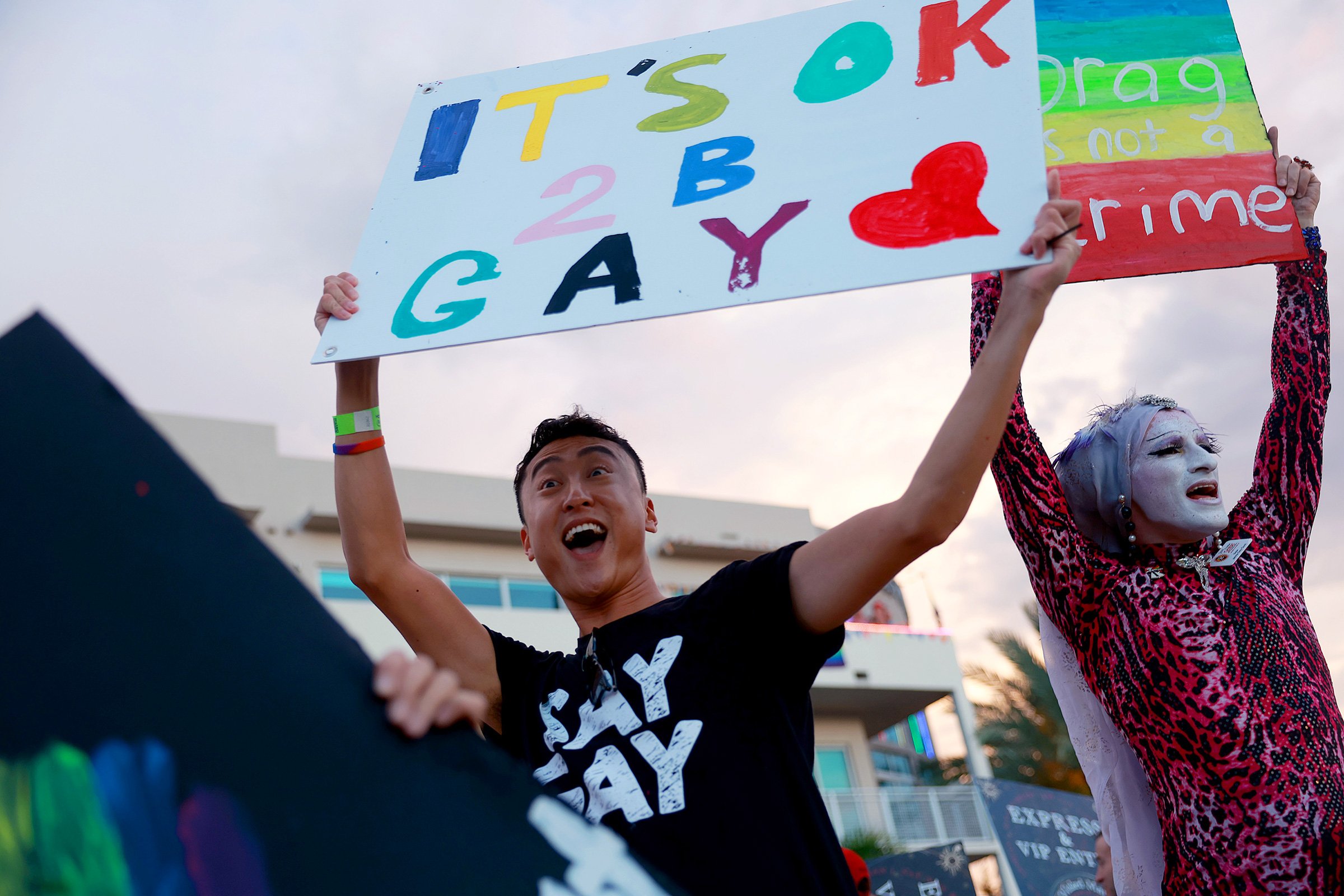
Not every bill was defeated in the state, which still has some of the harshest anti-transgender laws in the nation.
At 2:27 p.m. on Friday, March 8, the Florida Legislature adjourned sine die. With this adjournment, 21 of 22 anti-LGBTQ+ bills were effectively killed, leaving an anti-diversity, equity, and inclusion (DEI) in education bill as the lone piece of legislation to pass this session. This session featured some of the most severe bills ever proposed against transgender individuals, all of these bills are now officially dead. LGBTQ+ activists in the state now have the rest of 2024 to regroup, with hopes that the November general election will yield results against a legislature that has spent two years targeting transgender individuals in every aspect of life.
The bills that have failed include H599, a bill that would have expanded “Don’t Say Gay” policies to the workplace. It proposed banning government employees and any business with government contracts from sharing pronouns. Furthermore, it aimed to prohibit all nonprofits in the state from requiring education and training on LGBTQ+ issues — a significant issue for LGBTQ+ nonprofits, which would have been unable to operate within the state. That bill is now dead.
Another bill that died is H1639, a measure that would have mandated transgender individuals to have driver’s license sex markers matching their sex assigned at birth. It also aimed to penalize insurance providers offering gender-affirming care coverage and would have required health insurance plans to cover conversion therapy for transgender individuals. Although this bill did not pass, the Florida Department of Highway Safety and Motor Vehicles has reinterpreted certain provisions that already exist, effectively banning changes to driver’s license gender markers in the state and threatening individuals with accurate markers with charges of criminal fraud. However, challenging an administrative action is simpler than challenging a law enacted by the legislature, and such actions can also be reversed by future administrations.
Further bills that made headlines which died include:
In a press release from the Human Rights Campaign, Geoff Wetrosky stated, “Despite years of relentless attacks and dehumanizing rhetoric, LGBTQ+ people and our allies have never given up the fight for Florida. And we are shifting the momentum. People across the state showed up by the thousands to speak out and push back against anti-LGBTQ+ bills; and they are to thank for pushing back the tide of hateful and discriminatory policy. The fight to free Florida from the grip of Governor DeSantis’ devastating and extreme agenda of government censorship and intrusion into people’s lives is far from over. And the devastation he and his allies have caused will last long after these politicians are gone. But the tide is turning. Perhaps the anti-LGBTQ+ fever in Tallahassee is beginning to break. The people will prevail.”
Not every bill was defeated in the state, which still has some of the harshest anti-transgender laws in the nation. The one bill that did pass, House Bill 1291, prohibits educating teachers on diversity, equity, and inclusion (DEI) topics and bars “teaching identity politics.” Additionally, transgender drivers still face the potential revocation of driver’s licenses by the Florida Department of Highway Safety and Motor Vehicles (DHSMV), and many transgender adults have lost access to gender-affirming care. The state also enforces a criminal bathroom ban that could jail transgender individuals for up to a year.
However, this is the first time in three years where the bills targeting LGBTQ+ people, and trans people in particular, seem to be losing steam, according to local organizers.
“The momentum is undeniably shifting against extremism,” Nadine Smith of Equality Florida said in a press release, “Extremist groups are collapsing amidst multiple scandals. Parents are mobilizing on behalf of their kids and to stop the dismantling of public education. We will build on this momentum and redouble our commitment to the fight. Together, we can put power back in the hands of the people.”
This piece was republished with permission from Erin In The Morning.



